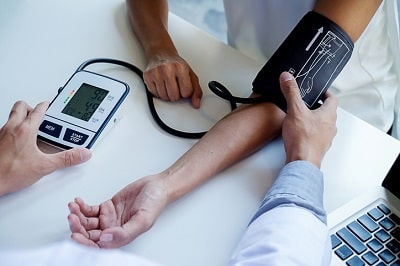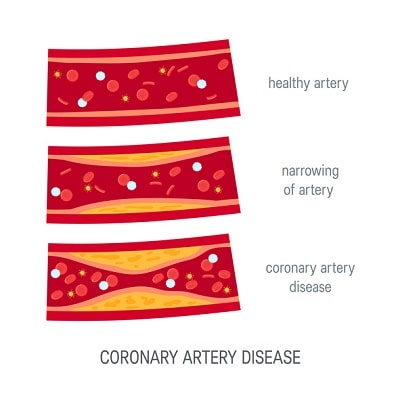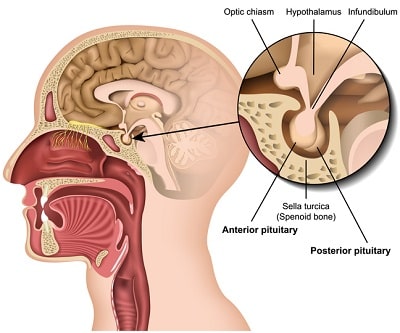As we get older, the importance of staying vigilant about monitoring our blood pressure becomes increasingly important. Cardiovascular disease is the #1 killer in the United States and throughout the developed world.
In fact, approximately 1 in 4 US deaths is caused by cardiovascular disease. Poor heart health is also closely linked to other serious diseases — neurological disorders like Alzheimer’s disease, for example — due to abnormally low oxygen levels in the blood.
 Blood pressure – the force with which your heart must beat to continuously pump blood through the arteries – is a crucial marker of heart health. “Hypertension” is the medical terminology used to describe chronically elevated blood pressure that are eventually likely to precipitate serious adverse health events, including cardiac arrest.
Blood pressure – the force with which your heart must beat to continuously pump blood through the arteries – is a crucial marker of heart health. “Hypertension” is the medical terminology used to describe chronically elevated blood pressure that are eventually likely to precipitate serious adverse health events, including cardiac arrest.
Clearly, protecting your heart health by minimizing hypertension should be a priority. Many patients who exhibit signs of HGH deficiencies might simultaneously battle high blood pressure. In these cases, understanding the correlation between HGH and cardiovascular risk factors can help patients and their doctors make informed decisions regarding therapy.
In this article, we’ll break down how blood pressure works and why maintaining normal readings is important, as well as explore what the clinical research says about relationship between HGH and blood pressure.
The Physiological Consequences of Abnormal Blood Pressure

As we mentioned at the outset, blood pressure describes how strongly the heart must beat to deliver oxygen-rich blood from your toes to your brain. If blood pressure remains elevated over time, it will eventually trigger a hardening and/or thickening of the arteries due to plaque buildup on the inside of artery walls that impedes optimal blood flow, essentially choking off the delivery of vital nutrients and oxygen throughout the body. This process of artery thickening is called “atherosclerosis.”
Atherosclerosis, in turn, forces the heart to work even harder to deliver blood throughout the body. When plaque buildup accumulates, it accelerates a negative spiral effect of worsening hypertension and atherosclerosis.
Why Is High Blood Pressure Dangerous?
Ultimately, if left untreated, hypertension drives heart disease. The casual relationship between hypertension and heart disease is so intense, in fact, that high blood pressure is the top predictor of future heart disease out of all known risk factors. However, as we will explore later, proper interventions can often treat hypertension and prevent heart disease before it’s too late. The first step in analyzing your individual heart health is to conduct a routine blood pressure reading.
How to Interpret Blood Pressure Readings
Thanks to advances in diagnostic technology, healthcare providers can perform a blood pressure reading in a matter of minutes. Blood pressure measurements are presented as two numbers – the top number is called “systolic pressure” and the bottom number is called “diastolic pressure.”
| BLOOD PRESSURE CATEGORY | SYSTOLIC mm Hg (upper number) | DIASTOLIC mm Hg (lower number) | |
| Normal | Less than 120 | and | Less than 80 |
| Elevated | 120 – 129 | and | Less than 80 |
| High Blood Pressure (Hypertension) Stage 1 | 130 – 139 | or | 80 – 89 |
| High Blood Pressure (Hypertension) Stage 2 | 140 or Higher | or | 90 or Higher |
| Hypertensive Crisis (consult your doctor immediately) | Higher than 180 | and / or | Higher than 120 |
- Systolic pressure measures the force of blood flowing away from the heart through the arteries.
- Diastolic pressure measures how much pressure the blood places on the heart between beats while it prepares for the next contraction.
Each measurement is vitally important to maintain below adequate thresholds – ideally, less than 120 for systolic pressure and under 80 for diastolic pressure.
Keeping both figures in check protects your heart by allowing it to do its job with less strain.
What Causes Hypertension?
 Armed with the knowledge of the seriousness of controlling blood pressure, the natural question becomes: What causes it and how can it be prevented? To begin with the first question, research has identified the following contributing factors to the development of hypertension:
Armed with the knowledge of the seriousness of controlling blood pressure, the natural question becomes: What causes it and how can it be prevented? To begin with the first question, research has identified the following contributing factors to the development of hypertension:
- Genetic predisposition.
- Excessive salt intake. (especially from processed foods like chips and candies)
- Obesity.
- Inactivity. The CDC says that only 23% of Americans work in adequate amounts of exercise regularly.
- Stress. When you have found yourself in a stressful situation, you may have noticed a dramatic uptick in your heart rate as well as a tangible increase in the force of your heartbeats. This is a normal hormonally-driven response to acute stress. However, long-term stress that remains unresolved is a major driver of hypertension and other cardiac distress. Social pressure in the form of conflict with bosses or lovers is a major source of stress for many people.
- Smoking. Chronic nicotine use is one of the most widely researched contributing factors to heart disease and other serious conditions.
Does HGH Cause Abnormal Blood Pressure? What the Research Says
“Acromegaly” is the medical term used to describe excessive HGH release by the pituitary gland, the tiny structure in the brain that produces HGH. People with acromegaly exhibit substantially higher rates of hypertension than the general population. As many as 35% of acromegalic patients also battle hypertension, fueling the consensus in the medical community that excessive circulating HGH leads to elevated blood pressure in some cases.
Conversely, hypophysectomy (the surgical removal of the pituitary gland) and the resultant drop in HGH levels has been shown in rats to trigger “hypotension,” meaning that blood pressure declines below healthy levels. The authors of the study conclude that HGH supplementation could safely and effectively restore blood pressure in hypophysectomized humans.
HGH and Vasodilation
In one study, the researchers conclude that HGH supplementation temporarily triggered vasodilation by way of boosted nitric oxide (NO) release. NO is a potent vasodilator, meaning that it opens up the arteries to allow maximal blood flow. In turn, blood pressure decreases because the heart doesn’t have to exert as much force to function.
However, the researchers noted in the conclusion that HGH’s modulating effect on blood pressure vis-à-vis higher NO activity was short-lived, rendering it a poor long-term intervention to fight hypertension. To date, the preponderance of evidence discussed here indicates a strong correlation between healthy HGH levels and normalized blood pressure.
What Implications Does the Research Carry for HGH Therapy Patients?
Although the review of the medical literature on HGH and hypertension may understandably concern some patients, it’s important to remember that HGH has only been shown to drive the development of hypertension in individuals with higher-than-normal levels of the hormone. For patients with HGH deficiencies, the evidence shows that supplemental hormone replacement therapy (HRT) can actually exert a beneficial impact on blood pressure when the deficiency corresponds to hypotension.
 Regardless of your risk factors, responsible and experienced HRT providers will continually measure all vital health markers — including blood pressure — before, during, and after treatment to ensure the patient’s safety.
Regardless of your risk factors, responsible and experienced HRT providers will continually measure all vital health markers — including blood pressure — before, during, and after treatment to ensure the patient’s safety.
Common Treatments for High Blood Pressure
Several medications, both pharmacological and natural, can effectively reduce blood pressure in patients with high measurements. Pharmacological treatments for hypertension include:
- Calcium channel blockers. (Norvasc, Cardizem)
- Angiotensin-converting enzyme (ACE) inhibitors. (Lotensin, Zestril)
- Diuretics.
Several herbs and natural supplements have been demonstrated to reduce blood pressure as well. They are:
- Garlic. Not only does garlic effectively lower blood pressure but it also protects heart health long-term by disrupting the atherosclerotic buildup of plaque in the arteries.
- Ginger. Researchers believe that ginger exerts its heart-protective properties by relaxing the blood vessels, which reduces the burden on the heart muscle.
- Fish Oil. The beneficial fats from fish are some of the best-studied remedies for overall health, including for reducing blood pressure. High-quality fish oil supplements are affordable even on tight budgets.
Not all interventions must be pharmacological. Various therapies and physical disciplines can be indispensable tools in the war chest for anyone who is dedicated to living a more heart-healthy lifestyle. In the fast-paced, on-the-move environment that characterizes modern American life, taking time to incorporate mindfulness practices are more crucial now than ever for our well-being.
Meditation, yoga, and cognitive behavioral therapy (CBT) are three evidence-based lifestyle practices for getting rid of unwanted stress.
The Bottom Line on HGH and Hypertension
Although the evidence is mixed in terms of the relationship between HGH levels and blood pressure, we know that the presence of optimal HGH levels in the blood enhances the hormonal regulation of blood pressure.
As we discussed earlier, HGH therapy could confer substantial normalizing effects on blood pressure in some patients. For HGH therapy patients with moderate hypertension, continual monitoring of blood pressure readings throughout the process is necessary to safeguard against any potential upticks in measurements. As always, your doctor will thoroughly examine you prior to beginning HRT. Blood pressure is one of the key vital markers that providers look at to determine if a patient is a good candidate for therapy.

